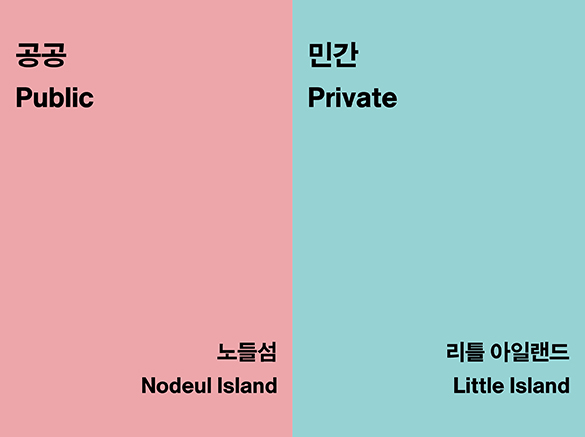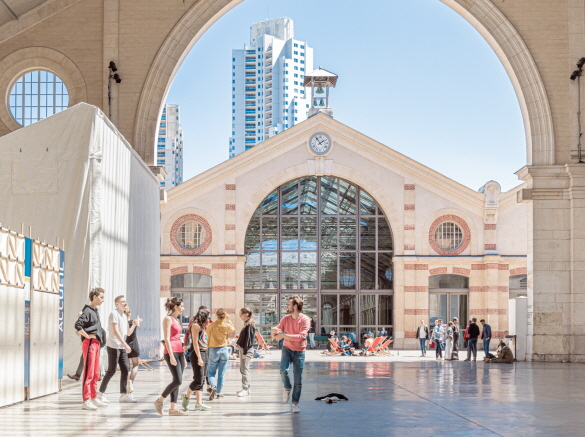SPACE November 2024 (No. 684)
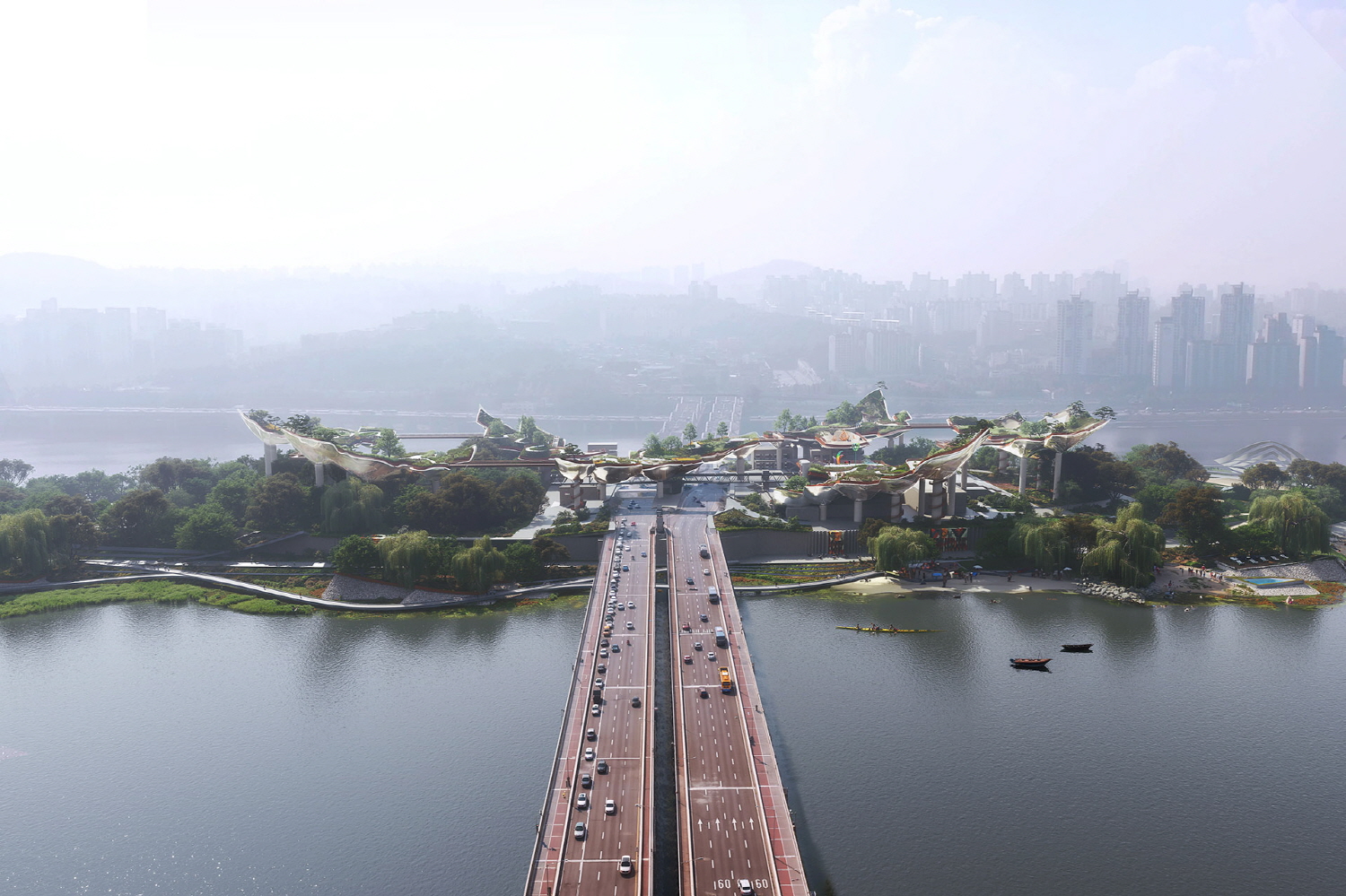
Rendering images of ‘Soundscape’
Project Reconfigured Ground, Nodeul Maeul / Soundscape (Nodeul Island)
Architect mmkplus Inc. + Topos design Group Inc. + Dongsimwon Landscape Architects Inc. / Heatherwick Studio
Location Nodeul Island, 445, 446, Yangnyeong-ro, Yongsan-gu, Seoul, Korea
Site area 119,854m2 (upper part: 60,818m2, lower part: 59,036m2)▼1
Building area 9,619m2 / in progress
Gross floor area 9,349m / in progress
Competition year 2016 / 2024
Construction period Oct. 27, 2017 – Nov. 30, 2019 / in progress
Opening Sep. 2019 / in progress
Client Seoul Metropolitan Government
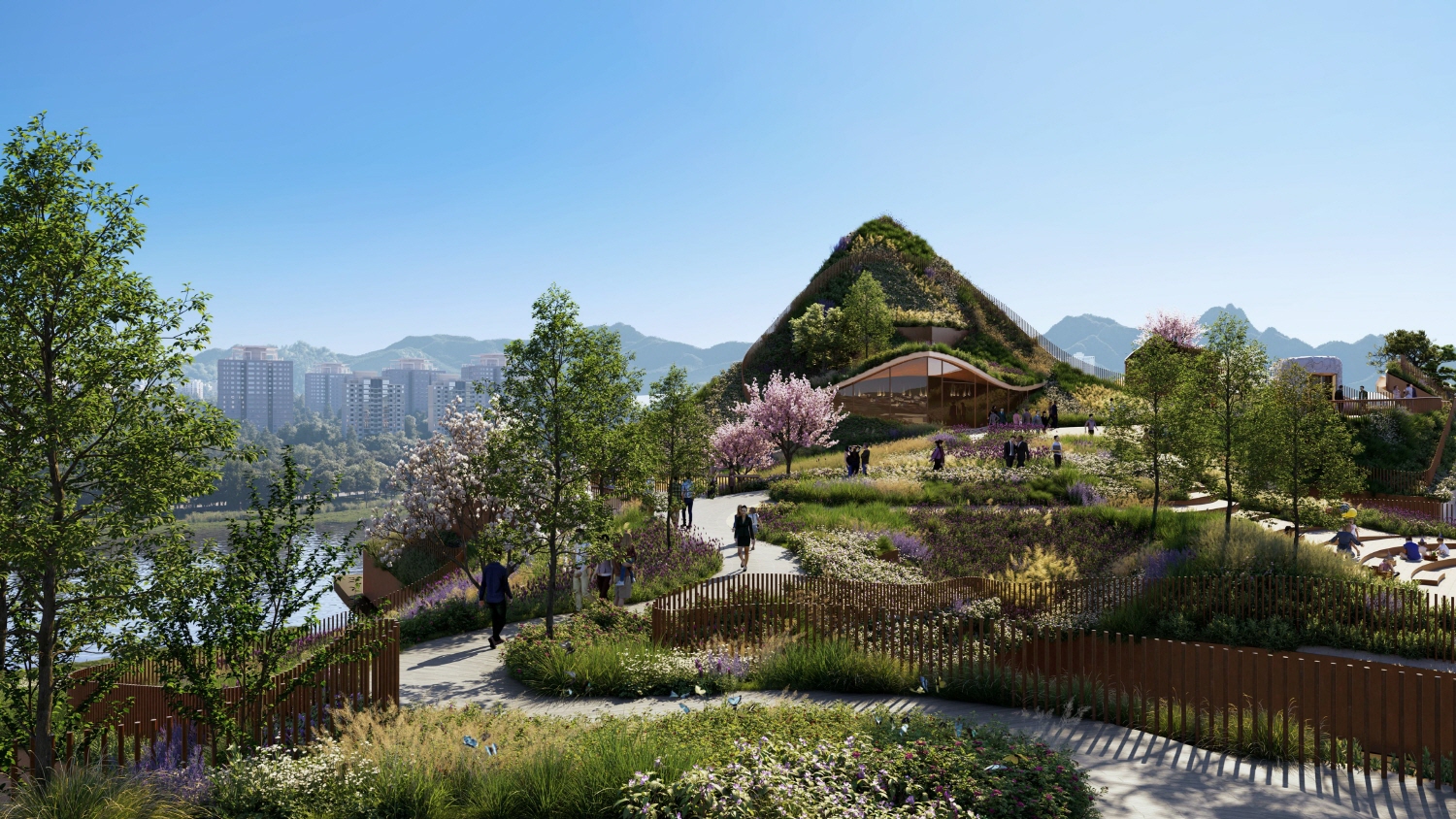
Rendering images of ‘Soundscape’
*The previous timeline was covered in SPACE No. 627
June 2015 Competition for Nodeul Dream Island (1st Phase) held, 10 teams selected for the second round of competition
Sep. 2015 Competition for Nodeul Dream Island (2nd Phase) held, ‘Band of NODEUL’, including Urban Transformer, Record Label Industry Association of Korea, Seoul Fringe Network, and etc wins
June 2016 International Competition for Nodeul Dream Island (3rd Phase) held, ‘Reconfigured Ground, Nodeul Maeul’ by mmkplus + Park Taehyung wins
Jan. 2017 Seoul Metropolitan Government (SMG) Nodeul Island Specialist Space Development Committee announced the operator of Nodeul Island will be selected through a private outsourcing bid
May 2019 SMG holds the Bidding for the Operation License of a Specialised Space in Nodeul Island, Urban Transformer, Fluxus Inc., and OTD Corp. are selected as operators
Sep. 2019 Nodeul Island opens to the public
Sep. 28, 2019 Nodeul Island Opening Festival held
Oct. 2020 – Feb. 2021 Special event to celebrate the first anniversary, ‘We sum up the culture in Nodeul’, held
Oct. 2021 – Nov. 2021 Second anniversary special performance, ‘The Wonder Weeks’, takes place
2022 The operator of Nodeul Island changes from Urban Transformer to a private agency
Mar. 2023 Idea Design Competition for the Nodeul Global Art Island held, seven plans are revealed, but no winning design is selected
July 2023 Nationwide Idea Design Competition for the Nodeul Global Art Island held
Jan. 2024 The operator of Nodeul Island changes from a private agency to the Seoul Foundation for Arts and Culture
May 2024 International Design Competition for the Nodeul Global Art Island held, ‘Soundscape’ by Heatherwick Studio wins
Apr. – Sep. 2024 Seoul Foundation for Arts and Culture’s self-planned programme, ‘Culture flows through the Art Island’, takes place
May 2024 – Seoul Foundation for Arts and Culture’s self-planned programme, Nodeul Island QR Code Tour ‘Nodulhanbakwi’, takes place
Apr. – Nov. 2024 Seoul Foundation for Arts and Culture’s self-planned programme, ‘Live House: Unexpected Talk Concert’, takes place
2027 Completion of ‘Soundscape’ expected
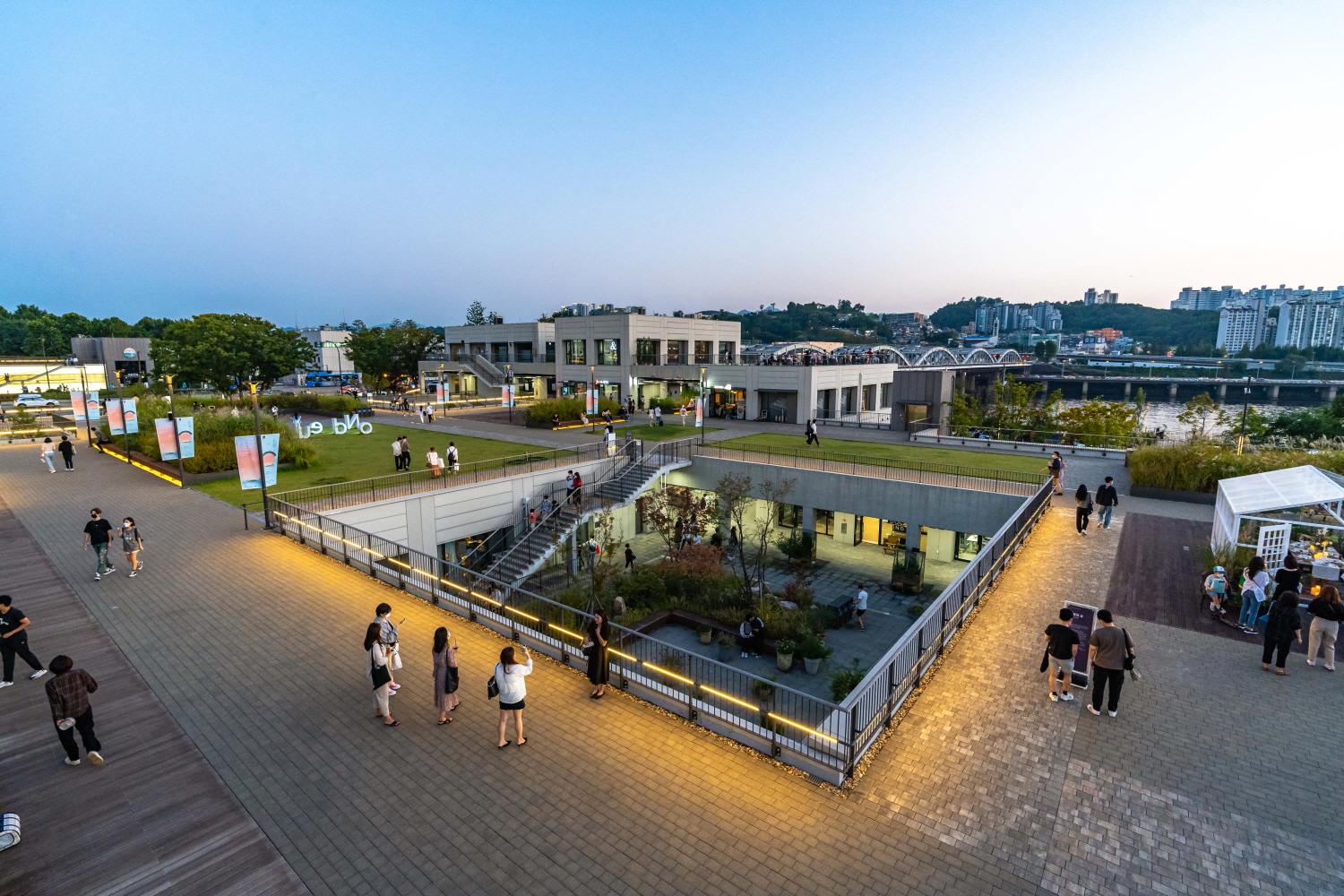
©Bongtographer
The N-th Competition on Nodeul Island
In May 2024, Soundscape by Heatherwick Studio won the International Design Competition for the Nodeul Global Art Island. This competition marks the fourth design competition focused on Nodeul Island. The concept of the Nodeul Global Art Island, which includes the 2023 Idea Design Competition for the Nodeul Global Art Island, attracted widespread attention by inviting renowned architects from both Korea and abroad. However, it overlooked the struggles and controversies that had emerged in previous competitions. Notably, the plan involves building a new structure on the same site where a building, based on the previous design competition results, was completed less than five years ago. The decision-making process did not consider the opinions of experts or citizens, and issues such as improving accessibility to Nodeul Island – raised with increasing concern over the years – were ignored. Instead, the competition was framed solely around programme and construction costs, demanding a creative and innovative landmark without a clear goal or vision, which sparked new challenges and controversies. (covered in SPACE No. 677)
An Experimental Approach to Pre-Operational Planning
Nodeul Island, located in the middle of the Hangang River with a width of 0.9 to 1.2km, is not an easy place to visit without a specific reason or desire. Nevertheless, there had been a long-standing desire to develop a public cultural space on Nodeul Island, since the 2000s, in an empty plot in the heart of the city. Competitions were held without allowing enough time to question whether a building truly needed to be constructed here. In 2005, the Seoul Metropolitan Government (SMG) purchased Nodeul Island and initiated design competitions for the creation of the Han River Art Island twice, selecting winning designs, but both attempts were cancelled. After the Han River Art Island Project was officially suspended in 2012, the island was temporarily used as a community garden. In 2013, renewed efforts to create a public cultural space on Nodeul Island began with forums and public discussions. The buildings currently on Nodeul Island resulted from the Competition for Nodeul Dream Island in 2016, which was part of the Nodeul Dream Island Development Plan. The Nodeul Dream Island Development Plan was unique in that it prioritised the development of an overall planning and operational strategy before introducing facilities, instead of the usual process of selecting a building and then appointing an operator. It recognised that to establish a well-functioning cultural space, there needed to be a clear plan for the space’s purpose, ongoing content planning, and operational management beyond just physical construction. This experimental approach aimed to create a space with both form and function. However, the experiment was not without challenges. The promise of awarding operational rights to the winning company of the competition was not honoured. The Urban Transformer team, which won the Competition for Nodeul Dream Island and the Facilities Composition Plan, had to go through an additional public bid process to win the right to operate Nodeul Island, which was limited to just three years. (covered in SPACE No. 627)
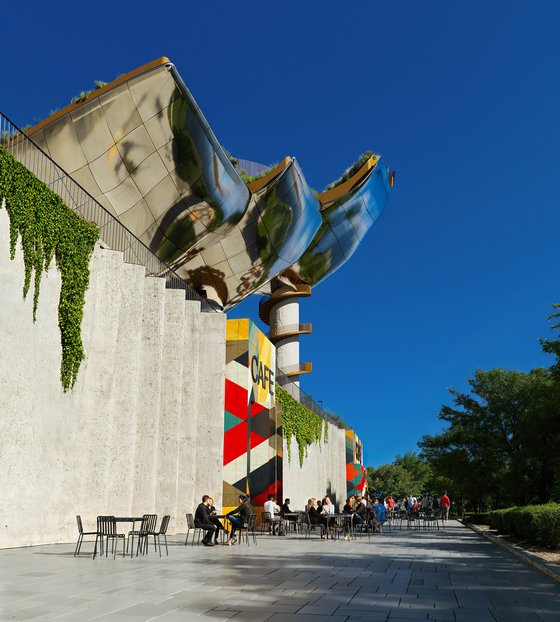
Rendering images of ‘Soundscape’
Frequent Changes to Operating Entities
Compared to many other public buildings that remain unused, Nodeul Island has fared better. However, in the five years since its opening, it has already seen two changes to its operating entity. After Urban Transformer’s private management (2019 – 2022), followed by a private agency (2022 – 2023), Nodeul Island’s operations have been handed over to the Seoul Foundation for Arts and Culture under public management since January 2024. During the period of Urban Transformer’s management, they oversaw various activities, from renting some of the island’s facilities to artists and citizens to organising key thematic programmes such as the 2019 Nodeul Island Opening Festival, the 2020 Nodeul Island 1st Anniversary Festival (‘We sum up the culture in Nodeul’), and the 2021 Nodeul Island 2nd Anniversary Performance (‘The Wonder Weeks’). However, once the private agency took over operations, these signature programmes disappeared. Since the Seoul Foundation for Arts and Culture took over in 2024, they have initiated self-planned programmes like ‘Culture flows through the Art Island Nodeul’. The foundation’s management team is responsible for budgeting, facility management, and promotions, while the project team directly manages programming and rental operations. According to a representative from the Nodeul Island project team, ‘the team includes both programme planners and stage technicians, enabling close communication, which allows us to plan high-quality performances’. However, with the upcoming completion of Soundscape by Heatherwick Studio, it remains unclear where the operational rights of Nodeul Island will reside, raising doubts about the continuity of public management.
The Need for Administrative Systems that Ensure Operational Rights and Autonomy
What will become of Nodeul Island’s operations in the future? Will the yet-to-be-determined operator successfully integrate Soundscape into citizens’ daily lives? What efforts must public authorities undertake to ensure that public cultural spaces are maintained effectively or transformed when necessary? To create a public cultural space that integrates into the everyday lives of citizens, innovative spatial planning ideas and sustained operational efforts are essential. Moreover, such a space can be created without a physical building. If the decision has been made to construct a building, it is crucial not only to ensure the quality of construction and the faithful implementation of the design but also to discuss how the space will be programmed and operated. Specific programmes are important, but for Nodeul Island to succeed as a public cultural space, and to avoid drifting after changes in government, it is essential to guarantee operational rights and autonomy to the management entity. Currently, the SMG’s ordinance on private management permits only three years of operation for private contractors. Even in cases of public management, team members may be reassigned due to the circumstances within the public foundation. Thus, there is a need for administrative reform to allow continuous operational rights and autonomy for the management entity. This is a lesson learned from the Nodeul Dream Island precedent, and it is a consideration for the upcoming Nodeul Global Art Island and the Soundscape.
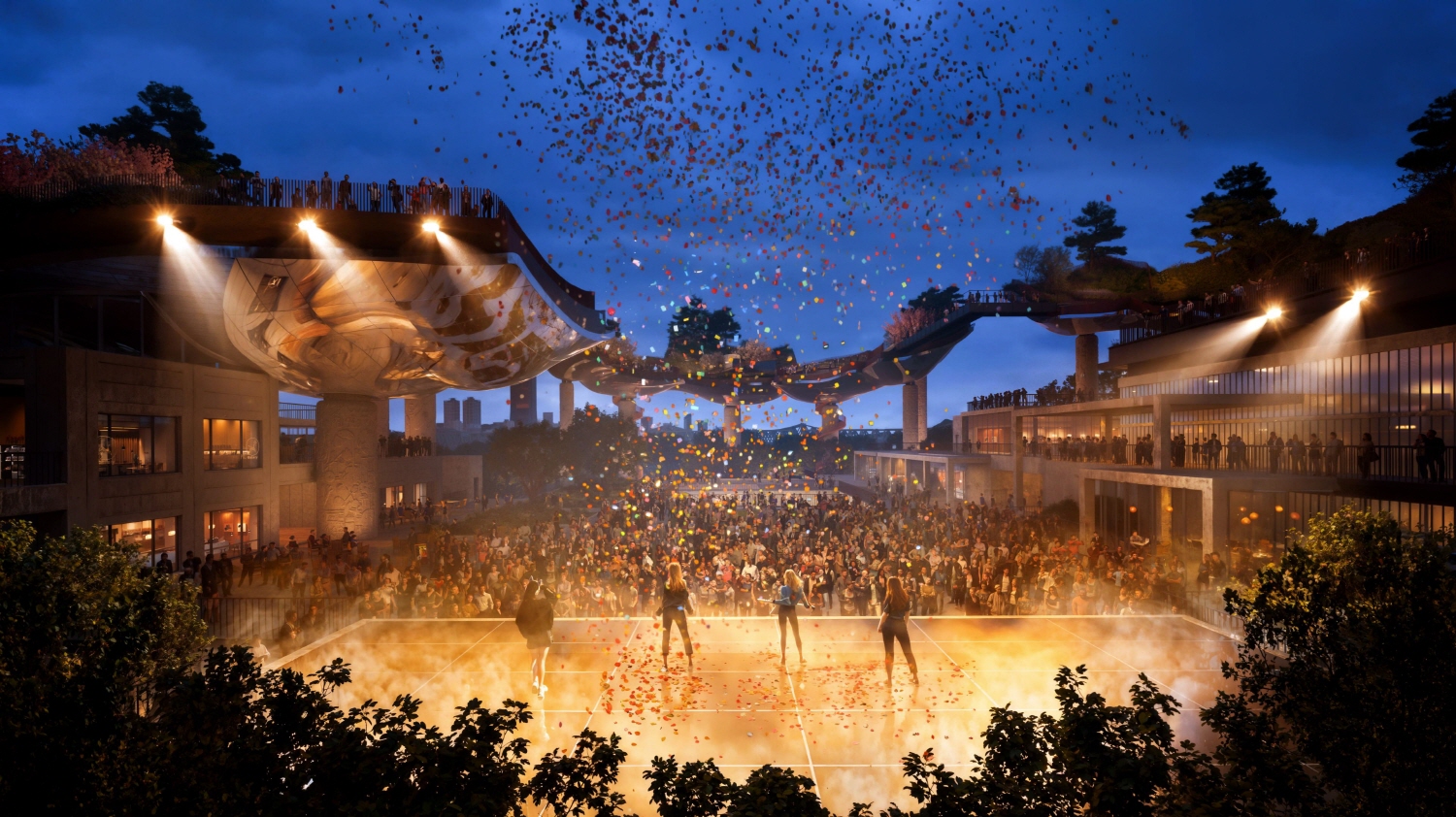
Rendering images of ‘Soundscape’
_
1 In the 2016 competition, SMG requested a plan for the entire site of Nodeul Island. However, the plan for the lower part was only a conceptual design and was not included in the construction cost. In the 2024 competition, the entire area of Nodeul Island, except for the military facility site (740m2) in the upper part, is included in the scope of the construction work.






